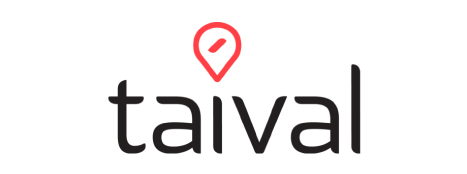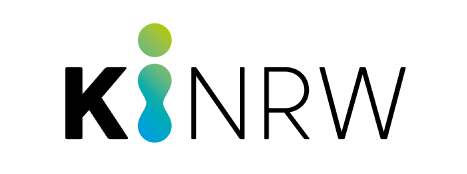AI Monday – Chapter NRW vol.3: AI and Climate © nblxer/stock.adobe.com
The next „AI Monday – Chapter NRW“ will take place as a virtual event on November 22, 2021. This time, the topic will be „AI and Climate“.
Artificial intelligence offers enormous potential in the fight against global warming. On the one hand, AI can contribute to a better understanding of climate change by analysing immense amounts of data and predict future developments and the effects of measures. On the other hand, AI can help deliver more environmentally friendly and effective solutions, such as optimising energy production and use. At the same time, however, it must be borne in mind that data centres and AI systems, especially the training of models with large amounts of data, can themselves be very resource-intensive.
We would like to take a look with you at the potential of AI, discuss the opportunities of AI-based technologies and at the same time show where these opportunities are already being used today. After presentations by experts, we look forward to a lively exchange among all participants to discuss what they have learned in smaller rounds. The event will be held in English.
With AI Monday, KI.NRW and AICommunityOWL want to connect those interested in AI in NRW and beyond to discuss the present and future of artificial intelligence and its impact on business and society. The AI Monday event series has been taking place in changing European cities since 2017.
Time: 5:30 – 8:00 p.m.
Speaker

Peter Dueben
AI and Machine Learning Coordinator, European Centre for Medium-Range Weather Forecasts ECMWF
AI and machine learning in weather and climate modelling
This talk will provide an overview on the use of machine learning in Earth system modelling. We will present opportunities and challenges, as well as specific use cases for machine learning in weather and climate modelling. We will outline how machine learning will be an important component of future developments towards digital twins of the Earth and large projects and initiatives such as Destination Earth.
Peter is the AI and Machine Learning Coordinator at the European Centre for Medim-Range Weather Forecasts (ECMWF) and holds a University Research Fellowship of the Royal Society that enables him to perform research towards the use of machine learning, high-performance computing, and reduced numerical precision in weather and climate modelling. Peter has also a strong interest in the quantification of uncertainty of predictions for chaotic systems. Peter is coordinator of the MAELSTROM EuroHPC-Join Undertaking project, work-package leader of the ESiWACE2 H2020 project, and Co-Pi of an US-INCITE grant to perform season-long, global, storm-resolving simulations. Before moving to ECMWF, Peter has written his PhD thesis at the Max Planck Institute for Meteorology and has worked as PostDoc with Tim Palmer at the University of Oxford.

Johannes Fütterer
CEO & Co-Founder, aedifion GmbH
aedifion – applied AI for climate change action in the real estate sector
Buildings account for around 40% of global energy consumption. The EU taxonomy as a derivative of the European Green Deal, the rise in CO2 emission costs and the recent increase in energy prices are leading to growing awareness and action to decarbonise the building environment. This presentation will show how aedifion uses artificial intelligence to reduce the energy consumption and CO2 emissions of commercial buildings using cloud-based platform, analytics and control products.
Dr.-Ing. Johannes Fütterer has been working on harnessing the possibilities of building automation and sustainably optimizing buildings since 2010. He conducted research and completed his doctorate at the Chair of Building and Indoor Climate Technology at RWTH Aachen University until he co-founded aedifion GmbH in 2017. As Managing Director of aedifion, Johannes is dedicated to the future of building automation – as an essential component of the energy transition.

David Scherf
Managing Partner, Marple GmbH
CoCuRA – Using earth observation and machine learning to identify organic cotton fields
Only 1.5% of global cotton production is certified organic. Yet demand for organic cotton is booming. This requires new, more efficient methods to facilitate the transition to and the certification of organic cotton production. We aim to provide a cost-effective solution by using satellite data and machine learning to automatically detect, map, classify and monitor cotton growing areas.
David Scherf is a German designer and entrepreneur. He is the co-founder of AI start-up Marple, which builds on a decade of work in digitization, software automation, and UX design. Scherf is the recipient of several design awards and a PhD for his work in materials research

Lucas Holtz
Data Scientist, ACCURE Battery Intelligence GmbH
AI and Energy Storage – Making Batteries Predictable
Today, millions – if not billions – of batteries degrade way too fast. This leads to an unsustainable supply chain, where batteries are retired long before they should be and often end up in landfills. To utilize the full potential of the batteries’ components, they should instead be retired to second life applications to save rare materials. Enabling the extended use of batteries requires monitoring – but a huge challenge is accurate prediction of battery degradation and safety issues. As such, AI and ML have vital roles to play in providing fast, accurate and scalable results.
Lucas is a data scientist at ACCURE Battery Intelligence. During his studies he has been involved in many research projects, after initially working with redox flow batteries, he later developed an interest in machine learning and pivoted towards lithium-ion batteries. In his master’s thesis he focused on developing a machine learning model to accurately predict the health of batteries. He received a master’s degree in energy engineering from RWTH Aachen. Lucas is now expanding on this topic and is aiming to make every battery on the planet predictable.

Charlotte Bander
Lab Manager, Sustainable AI Lab University of Bonn
The Bonn Sustainable AI Lab
While there is a growing number of research publications and projects directed towards using AI for sustainable development, there is little research addressing the environmental and social costs of AI, for example the carbon emissions produced when training and tuning AI models. The Sustainable AI Lab is a space for excellent researchers from multiple disciplines. They will investigate the often-hidden costs, of designing, developing, and using AI across society, and who bears the burden of these costs. An overarching goal is to inform public policy guidelines for the development of proportionate and sustainable uses of AI.
Charlotte Bander is the lab manager at Bonn University’s Sustainable AI Lab. After completing her studies in Social Sciences, English and European Studies, she worked as a programme officer at the Alexander von Humboldt Foundation. She has co-organised the Bonn event on Artificial Intelligence and gender discrimination, and the Sustainability of Artificial Intelligence session at COP26 in Glasgow.
organized by:



